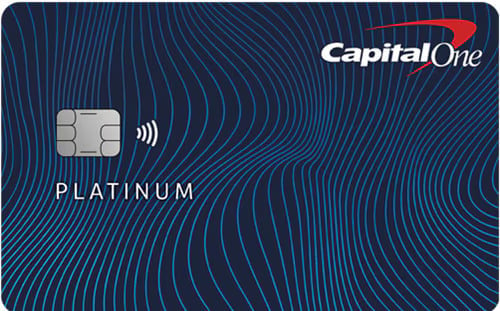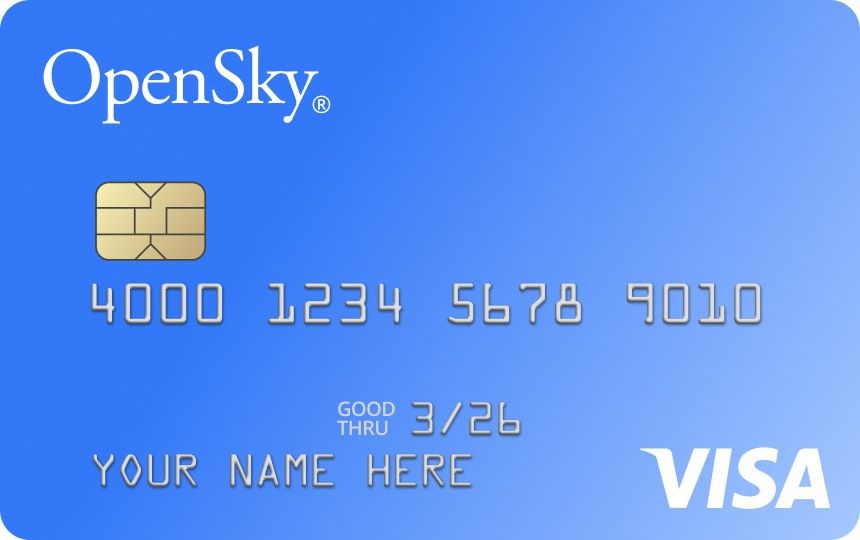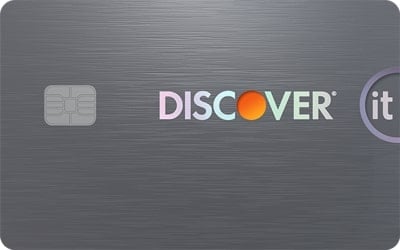5 Things to Know About the FIT Credit Card
Between the hefty fees and the low credit limit, this card probably won't be the best fit for your wallet.

Many or all of the products on this page are from partners who compensate us when you click to or take an action on their website, but this does not influence our evaluations or ratings. Our opinions are our own.
If you’re trying to build or rebuild credit, the FIT™ Platinum Mastercard® may appeal as a quick and easy option. Issued by The Bank of Missouri and serviced by Continental Finance, it doesn't require a security deposit, and as a Mastercard, you'll be able to use it almost anywhere.
But chances are, this card’s seemingly ongoing fees won’t come close to fitting your budget.
Let’s take a look at the most important things you should know about the FIT card, as well as several alternative credit cards for bad credit (typically, FICO scores of 629 or below) that are likely to be a better fit for your wallet.
1. The fees are outrageous
Annual fees aren’t uncommon and may even be unavoidable when trying to obtain an unsecured credit card for bad credit. But in addition to a heftier-than-normal annual fee, the FIT card charges a variety of less typical fees. Here's a look at what you can expect to pay to carry this card:
$95 one-time processing fee. This must be paid in full using another payment method before activating your FIT card.
$99 annual fee in the first year, then $125 after that. This is immediately charged upon activating the card and counts against your credit limit. (More on this later.) If you can’t pay off the fee in the first month, interest will accrue. Again, it's not usual to find annual fees on cards aimed at those with thin credit, but $99 is on the high end.
$150 maintenance fee. $0 introductory fee for the first year, then $150 thereafter (billed $12.50 per month). This is in addition to the annual fee.
That adds up to $194 for the first year and $275 for each subsequent year. And that doesn’t account for other potential fees, such as a $30 fee if you need to order an additional card or the $41 fee for a late or returned payment.
What's the alternative?
For access to credit with a much lower upfront cost, consider the $0-annual-fee Capital One Platinum Secured Credit Card. It does require a security deposit, but that deposit could be as low as $49 in exchange for a $200 initial credit line, depending on what you qualify for. Regardless, you'll have the opportunity to get your security deposit back after establishing a history of on-time payments, unlike the FIT card's multiple fees, which are non-refundable.
2. The initial credit limit is fairly low
All borrowers who qualify for the FIT card are offered a $400 starting credit limit. However, the $99 annual fee immediately cuts into that, putting your initial spending power at $301. For many — especially those just starting with credit — that number is frustratingly low. Having such a small credit limit affects your access to funds and may leave you with high credit utilization, an essential component of your credit score.
Furthermore, FIT cardholders must wait to get a credit limit increase for at least 13 months after card opening — and they may have to pay a fee to get it.
3. It's got a sky-high annual percentage rate
If you can’t pay your FIT card balance in full each month, you’ll pay a high interest rate of 35.9% (as of October 2024). While that’s not entirely outside the realm of "normal" among credit cards for bad credit, it’s still much higher than the average compared to other cards and will add up quickly — especially if you factor in paying interest on the card’s various fees.
Plus, if you make only minimum payments against your credit card balance each month, compounding interest charges will also count against your already low credit limit.
What's the alternative?
While it's always ideal to pay off your credit card bill in full each month, the costs for carrying a balance will be cheaper with the OpenSky® Secured Visa® Credit Card. The ongoing APR is 24.64% Variable APR, a good bit lower than the FIT card's APR. (For comparison, as of November 2023, the average interest rate for credit cards that incurred interest was 22.75%.)
The OpenSky® Secured Visa® Credit Card does normally require a $200 minimum refundable deposit, plus a $35 annual fee. But again, that deposit is refundable, and that annual fee is much more palatable than what the FIT card charges. Moreover, the card doesn't require a credit check or a bank account.
4. Payment history is reported to all 3 credit bureaus
The FIT card will regularly report your account details to all three major credit bureaus, including payment history. This is key if you’re focused on building credit since the information these companies collect is used to determine your credit score.
While important, though, this isn’t unique. Many other credit card issuers also report account histories to these bureaus, so this feature doesn’t justify the exorbitant cost of holding the FIT card.
What's the alternative?
The Chime Secured Credit Builder Visa® Credit Card, issued by Stride Bank, may be worth looking into. It works similarly to a reloadable debit card, allowing you to set aside funds ahead of time each month to pay your credit card bill. But unlike a debit card, it reports to the three main credit bureaus.
Plus, the Chime Secured Credit Builder Visa® Credit Card charges no annual fee and doesn’t require a credit check. And because the card doesn’t allow you to spend more than you’ve set aside, you’ll never be charged interest on purchases. (Terms apply; see footer below.)
5. There’s no upgrade option
Since credit cards for bad credit tend to feature high costs and low credit limits, your goal when using them to build credit should be to move on to a better product as soon as possible.
Sadly, this is another area where the FIT card falls flat. It offers no option for a product change to a better card with lower expenses or better perks. Instead, the only way to stop paying the card’s exorbitant fees is to close the account.
But closing an account can be bad news for the credit you’ve been working so hard to build, as credit history length is a significant factor in your credit scores. Closing the account may also negatively impact your credit utilization.
And whenever you're ready to apply for a different card, you’ll face a hard inquiry on your credit report that can temporarily ding your scores.
What's the alternative?
To kick off your credit-rebuilding journey with a clear path to better-quality credit products, consider the Discover it® Secured Credit Card. It requires an upfront security deposit equal to the credit limit you want to establish. However, Discover automatically reviews secured credit card accounts seven months after account opening to determine eligibility for an unsecured Discover credit card. You can get your deposit back if you show a consistent history of on-time payments over that period and upgrade without a hard inquiry on your credit report or the negative impact of a closed account.
Plus, the Discover it® Secured Credit Card is one of the only secured credit cards to offer rewards, earning 2% back at gas stations and restaurants up to $1,000 in purchases per quarter, plus 1% back on all other purchases.
Find the right credit card for you.
Whether you want to pay less interest or earn more rewards, the right card's out there. Just answer a few questions and we'll narrow the search for you.





